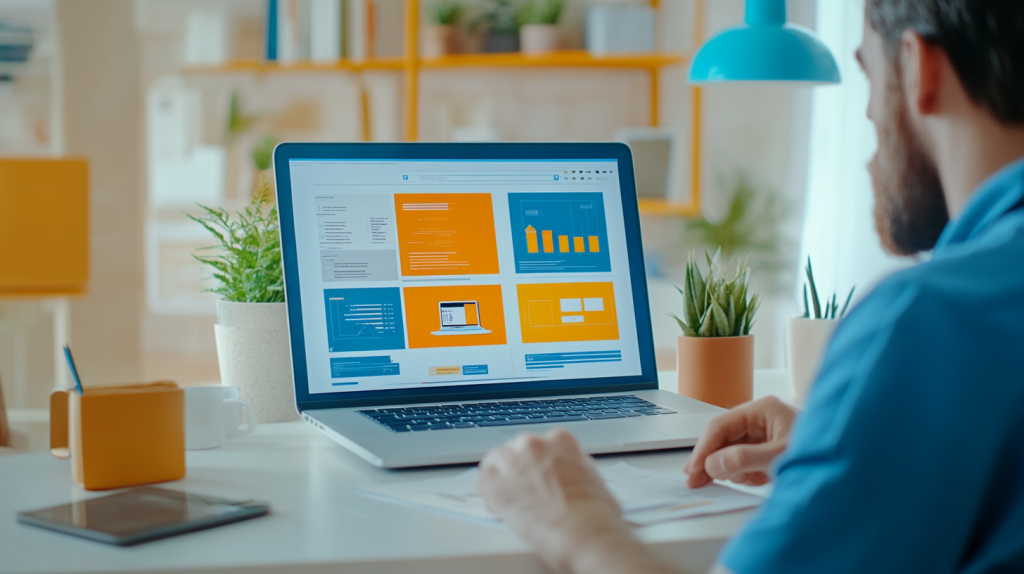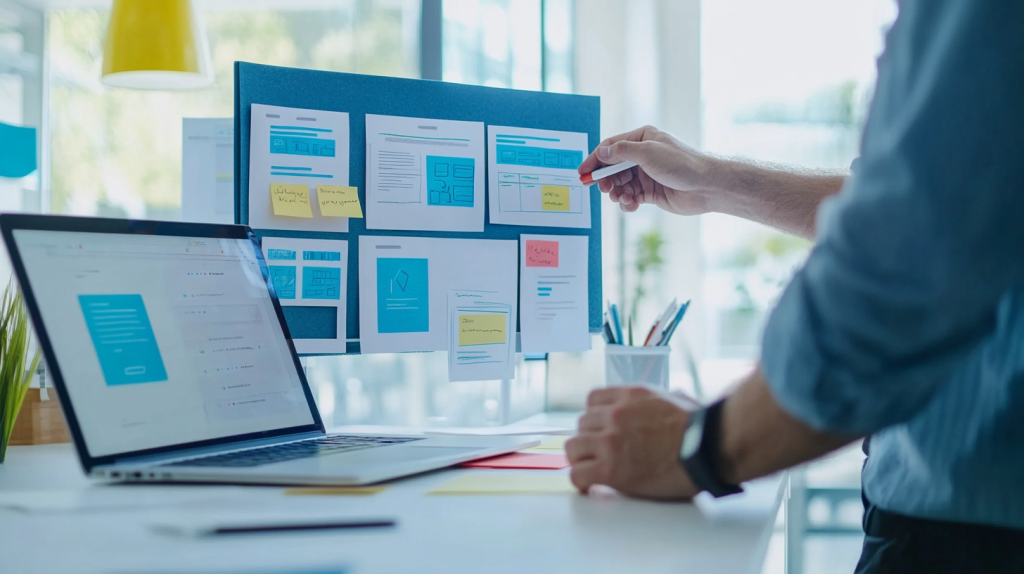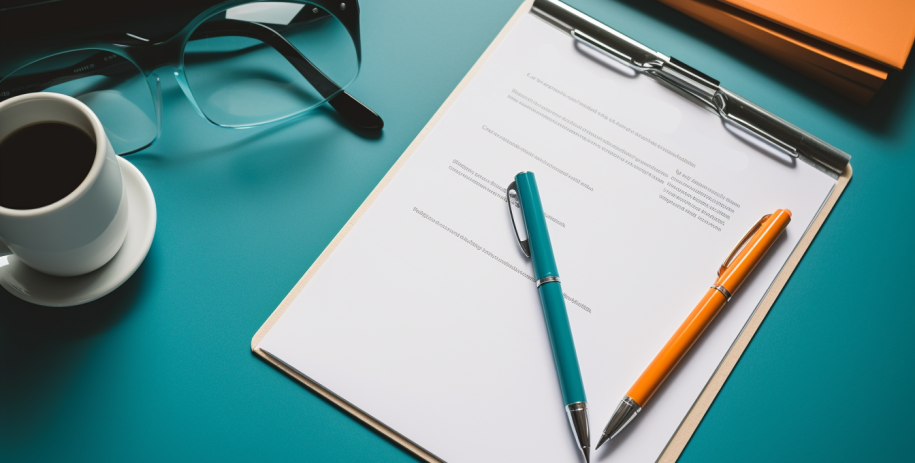Top Questions to Ask a Website Designer Before Building Your Business Website
Building a new website is an exciting step for your business—but choosing the right designer or agency is just as important as the design itself. The right partnership ensures your website is not only beautiful but functional, user-friendly, and built to grow with your business.
Before you commit, here are the top questions to ask a website designer to make sure you’re on the same page and set up for success:
1. What’s your web design process like?
Understanding a designer’s process from start to finish is key to ensuring a smooth and successful project. A well-organized design process typically starts with a discovery or strategy phase, where the designer learns about your business, target audience, and goals for the site. From there, they may create wireframes or mockups to map out the layout and user flow before moving into full design and development.
Ask questions like:
- Will I be involved in key milestones, like approving the layout or visual design?
- How do you handle revisions and feedback?
- What’s the typical timeline from start to launch?
This helps you set clear expectations on communication, involvement, and delivery—and ensures you’re aligned every step of the way.
2. Will my website be custom-built or based on a template?
There’s a big difference between a fully custom-built website and one that uses an off-the-shelf template. Custom websites are built from the ground up to match your brand, goals, and unique business needs. They offer maximum flexibility in terms of design, functionality, and future scalability—but often require more time and investment.
Template-based sites, on the other hand, can be quicker and more budget-friendly to launch but may come with limitations in design, customization, or performance. They might also include bloated code or features you don’t need, which can affect speed and SEO.
Ask your designer:
- How much creative control will I have over the layout and design?
- Will the site be scalable for future updates or new features?
- Are there any limitations I should be aware of with the platform or template?
Understanding these details upfront will help you choose the right approach for your business—and avoid headaches later if you decide to grow or rebrand.

3. Do you handle both design and development?
Some professionals focus strictly on visual design—creating the look and feel of your website—while others offer a full-service solution that includes both design and development. It’s important to clarify this early on, as it can impact your timeline, budget, and who else you may need to hire.
If your designer only delivers static mockups, you’ll likely need to bring in a developer to turn those into a functioning website. On the other hand, a full-service designer or agency can handle everything from strategy and branding to coding and launch, making the process more streamlined.
Be sure to also ask:
- Will the website be mobile-responsive and optimized for all screen sizes?
- Do you handle hosting, domain setup, and technical support?
- What platform will the site be built on (WordPress, Webflow, Shopify, etc.)?
Knowing whether you’re working with a designer, developer, or both ensures there are no gaps in the process—and that your final website will look great and work seamlessly on all devices. Make sure they will make your site mobile responsive!
4. Will My site be built with SEO and performance in mind?
A great-looking website is only part of the equation—if people can’t find it or if it loads slowly, you could be losing valuable traffic and potential customers. That’s why it’s essential to ask your designer how they handle technical SEO, mobile responsiveness, and site speed.
A well-optimized site should:
- Be built with clean, search engine–friendly code
- Use proper heading tags, meta descriptions, and alt text for images
- Load quickly, thanks to compressed images and efficient coding
- Work seamlessly on phones and tablets of all screen sizes
You should also ask:
- Do you submit the site to Google or help set up basic SEO tools?
- Will you provide guidance on content structure for better search visibility?
- Are the images and scripts optimized to reduce loading times?
These elements aren’t just “nice to haves”—they’re essential for ranking well on search engines, providing a good user experience, and converting visitors into customers. Make sure your designer isn’t just focused on visuals, but also on building a strong technical foundation that helps your business grow.
5. Will I be able to update the site myself?
After your website is launched, you’ll likely want to make updates—whether it’s adding blog posts, updating hours, or changing photos. That’s why it’s important to confirm that you’ll have full access to the backend of your site and that it’s built on a platform you’re comfortable using, like WordPress, Webflow, or Squarespace.
Ask your designer:
- What platform will the site be built on?
- Will I receive training or documentation on how to make edits?
- Is ongoing maintenance included or available if I need help later?
Having control over your content puts you in the driver’s seat and saves time and money in the long run. Even if you plan to have the designer make most updates, it’s still smart to ensure you’re not locked out of your own website. Clear ownership and ease of use should be part of the conversation from day one.

6. What is your timeline and availability?
Before committing to a designer, it’s essential to understand how long the website will take from start to launch. Every project is different, but having a clear timeline helps you plan around other business needs, like marketing or seasonal promotions.
Ask your designer:
- What is the estimated timeline for each phase—strategy, design, development, and launch?
- Can you meet my desired launch date or deadline?
- How many other projects will you be working on at the same time?
Knowing how busy your designer is can give you a better sense of their availability, turnaround time for feedback and revisions, and how responsive they’ll be throughout the process. A great website takes time, but you should also feel confident that your project will stay on track and receive the attention it deserves.
7. Do I need to have all my content ready before we start?
Yes—having your content ready early in the process is a huge advantage. Your site’s layout, flow, and design decisions are all driven by the words, images, and messages you want to communicate. When content is delayed or created last-minute, it often leads to rushed revisions or design compromises.
If you’re still developing content, talk with your designer early. Some web design teams offer content writing or can help structure your messaging to fit your goals. The more aligned your content and design are from the beginning, the stronger and more effective your website will be.
8. What happens after launch?
Launching your website is a big milestone—but it’s not the end of the journey. Websites need regular maintenance to stay secure, up to date, and functioning properly. This includes tasks like software updates, backups, performance checks, and troubleshooting if anything breaks.
Ask your designer:
- Do you offer ongoing support or maintenance plans?
- Is hosting included, or do I need to set that up separately?
- Who do I contact if I need help down the line?
It’s important to know whether your designer provides these services or if you’ll need to manage them yourself (or hire someone else). Having a clear understanding of what’s included after launch can prevent headaches later and ensure your site continues to perform well over time. Think of it like caring for a car—you’ll want a plan in place for regular tune-ups to keep things running smoothly.

